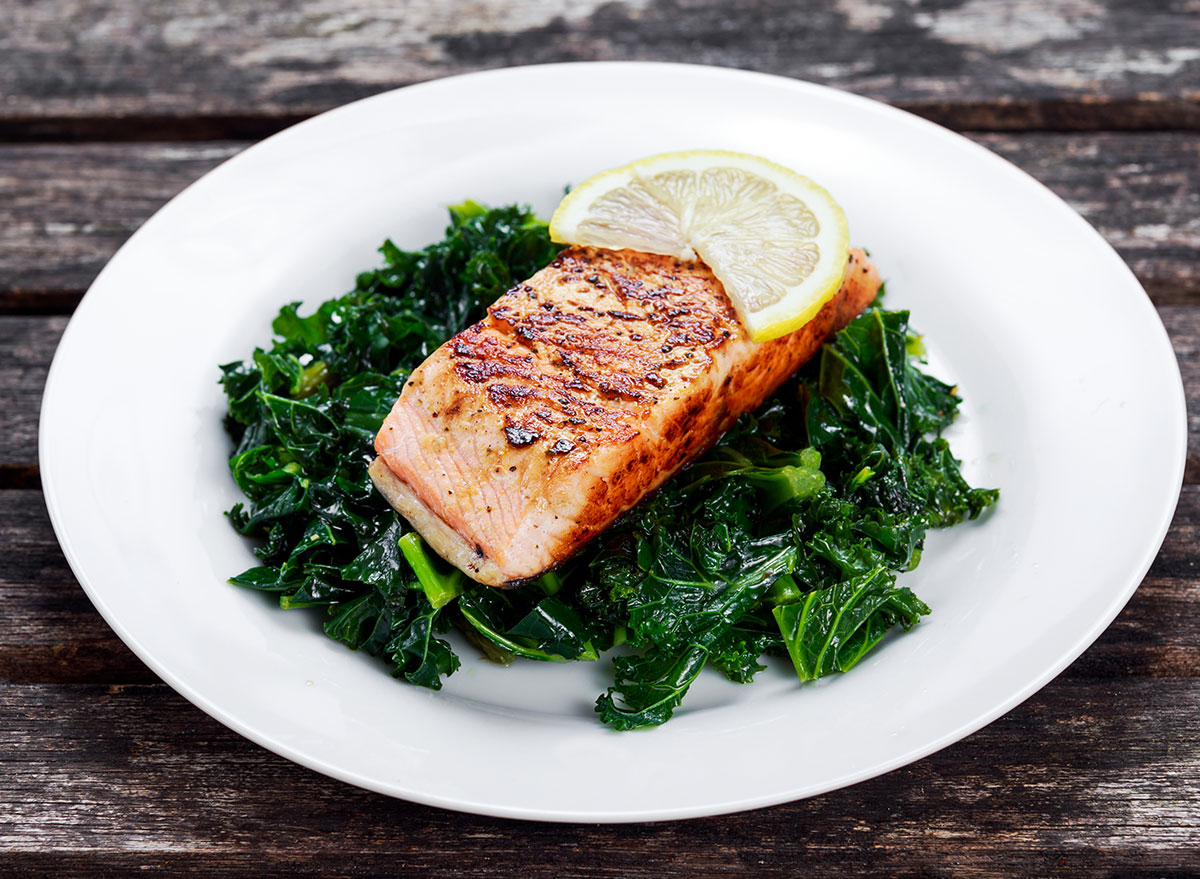The One Food Doctors Are Urging Everyone To Eat Right Now

Not only do you have to worry about the common cold and flu this winter, but you also have to factor in coronavirus as well, which makes it all the more important to take extra measures to keep your immune system strong. While there are many ways you can support immune function, eating a diet full of vitamin and mineral-rich foods is high on that list.
Dr. Lauren Powell, MD, Board of Experts for Objective Wellness, and Dr. Dyan Hess, Medical Director of Gramercy Pediatrics, both know a thing or two about which foods are loaded in the nutrients that should be heavily prioritized in your meal prep right now. While they each chose a different food to spotlight, both selections share one key thing in common: they're rich in vitamins that are known to support immune function.
Below, you will see the top nutrient-dense food Dr. Powell and Dr. Dyan Hess suggest you eat to help fend off illness this winter season. And after you add the doctor-recommended foods to your shopping list, don't forget to read up on 21 Best Healthy Cooking Hacks of All Time.
What is the one food people should eat right now to help combat viruses?
Dr. Powell says her favorite food to eat to help support a healthy immune system during the fall and winter is kale. Not only is the leafy green in season right now, but it's also inexpensive and low in calories. As Powell points out, "you're getting a real bang for your buck when it comes to nutrients because it's packed with antioxidants, vitamins B, C, and D, is a great source of folate and iron, plus a wide range of other minerals and nutrients that can help prevent various health problems."
What vitamins B, C, and D all share in common is that they each play a role in supporting the immune system, and help those cells function at peak performance. For example vitamin B, "works to fight off germs and bugs by giving a boost to the body's defense system and keeping energy levels up, which is key to maintaining a healthy immune system," Powell explains. (Related: A Vitamin B Deficiency Might Be the Reason You're Tired All the Time.)
Something else to keep in mind? Sleep, and how it's pivotal for maintaining a healthy immune system because you're most susceptible to bugs and infection when you're feeling worn out and low on energy. Vitamin C is also crucial for promoting immunity to certain viruses because it helps to protect your body from harmful free radicals, which can damage cells in the body and ultimately cause illness. Lastly, no cocktail of immune-supporting vitamins is complete without vitamin D. Dr. Dyan Hes says vitamin D is believed to have antiviral properties, which is why she says the number one food people should eat this winter is salmon.
Each 3.5-ounce serving of salmon contains about 500 IU of vitamin D which, conveniently, is the recommended daily amount. There are other foods that contain vitamin D of course, such as egg yolks, herring sardines, and mushrooms, but they don't contain nearly as much as salmon does per serving. Another route is to take a vitamin D supplement, but Hes says to make sure it's clearly labeled vitamin D3, cholecalciferol.
"Some studies show that people with low vitamin D are more susceptible to serious covid infections, so it would not hurt to make sure your vitamin D levels are within the normal range," says Hes. "A dose of 1000 IU daily will help low vitamin D levels. Many of us are vitamin D deficient because we do not get enough sunlight, which is needed by the body to synthesize vitamin D." (Related: Black Women at Greater Risk of This Vitamin Deficiency, Study Says.)
Speaking of supplements, are there any other ones people should consider taking right now?
We know that vitamin D is the one vitamin many doctors are urging everyone to take right now, however, Powell also has a few other recommendations to help you get through the winter season.
"I really love Every Day C gummies and Immune + Wellness gummies from Objective Wellness," she says. "My current supplement routine is to take Every Day C every other day for an extra boost of vitamin C [and] to help promote and support healthy immune function. Plus, you get the antioxidant benefits of vitamin E from these that help to build and support immune cells."
On the two off days, she takes the Immune + Wellness gummies for a smaller dose of vitamin C at just 70 milligrams, in comparison with the 250 milligrams in the Every Day C gummies. These gummies also pack elderberry, which has long been used medicinally to help fight infection. However, recent studies indicate the fruit may not be as effective at treating or even preventing viral ailments as previously thought, so it's important that you don't solely rely on the herbal remedy this season.
Powell also stresses to not overdo it on the supplements. She encourages doing research on the types of supplements you're taking or thinking about taking, as well.
"Overdosing your system on vitamins isn't going to protect you any more than taking the recommended amount. You wouldn't believe how often I hear patients tell me they're taking something to boost their immune system, but they don't know what [it is], what's in it, or how much is in it," she says.
You don't want to double up on certain vitamins, especially fat-soluble ones including vitamins A, D, E, K, which are stored in the body and toxic levels can build up over time. Water-soluble vitamins such as B vitamins and vitamin C aren't stored in the body as easily, and any excess amount consumed is typically excreted through urine.
"Lastly, and maybe most importantly, people should visit their doctors and get the proper testing done to know if they have any nutrient or vitamin deficiencies and what they are," says Powell. "If you're deficient in vitamin D, you're going to be required to take a different amount than maybe the suggested dose or milligrams."
For more, be sure to check out 16 Foods Doctors Are Urging Women to Eat.








